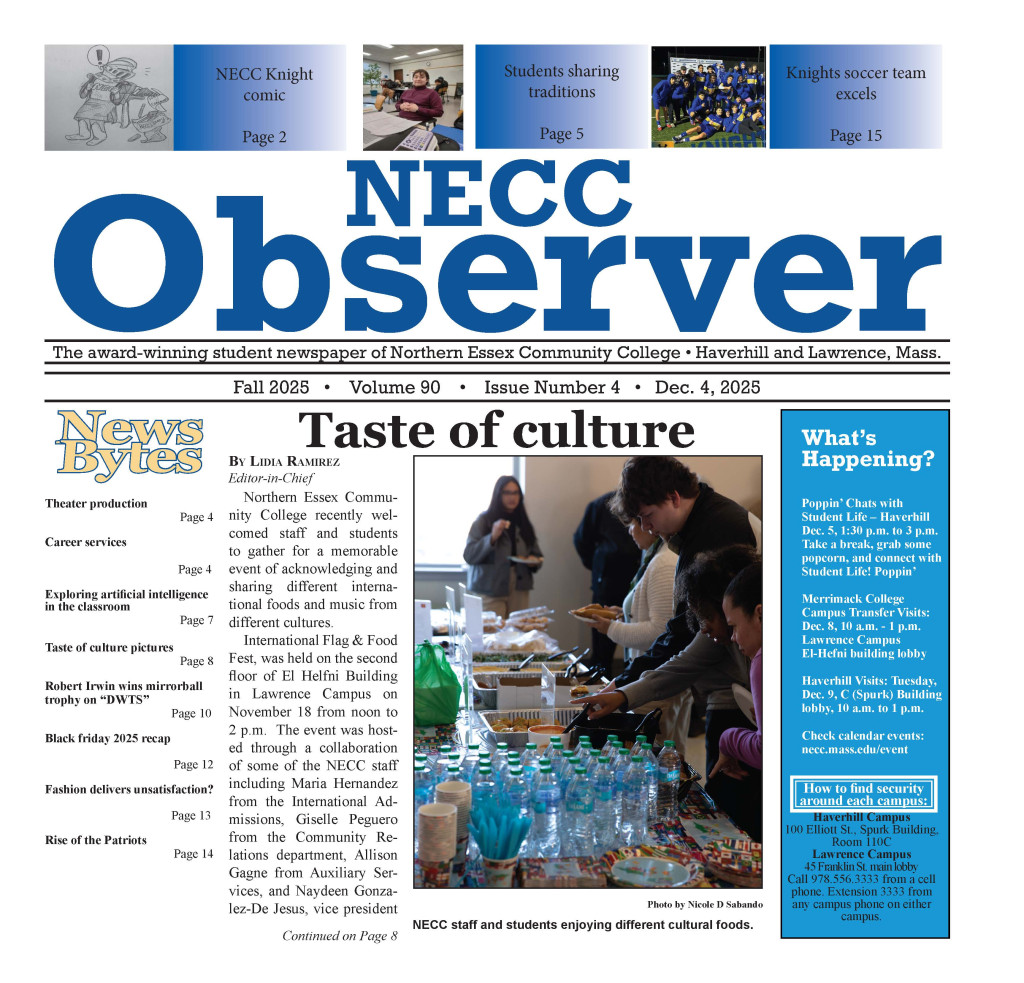How AI is shaping student learning
Students at Northern Essex Community College (NECC) are increasingly using artificial intelligence (AI) to support their studies, raising questions about whether these tools are enhancing their learning or simply doing the thinking for them.
Eighty-six percent of students globally use AI regularly, with 66% specifically utilizing tools like ChatGPT to brainstorm ideas, write essays, and get quick feedback, according to the Digital Education Council. While convenient, this growing reliance has sparked concern among educators who wonder if students are truly learning or just outsourcing their cognitive work.
Devan Walton, an assistant professor of computer science at NECC, provided insights on the evolving role of AI in education. “Students have easy access to AI, and it can help them with everything from math homework to essay writing,” Walton said. “But what happens to learning when students rely too heavily on technology? It risks disincentivizing the effort needed to truly understand subjects.”
Walton noted that the integration of AI has pushed teachers to rethink their approaches. “Teachers are still trying to understand how students use AI so they can adapt their curriculums in ways that continue to foster genuine learning,” he added.
Beyond its impact on learning, AI brings up concerns about privacy and authenticity. Walton pointed out that while some educators use AI detection tools to spot AI-generated work, these tools are not foolproof. “These detection tools can produce false positives, putting students in a tough spot, which is why I advise teachers to use them cautiously,” he said.
When thoughtfully integrated, Walton believes AI can be a valuable classroom tool. However, he cautions against over-reliance, particularly as many students may not realize how much data AI-enabled devices collect. “AI is embedded in so many aspects of daily life, often without users’ full awareness of how much data is tracked,” he said, underscoring the importance of informed technology use.
The question remains: will NECC students and educators find a balance between leveraging AI’s potential and preserving the integrity of learning? While AI tools can undoubtedly help students succeed, they can also lead to over-reliance if not used responsibly. As Walton put it, “AI can support learning, but it’s up to students to make sure they’re still doing the thinking.”

